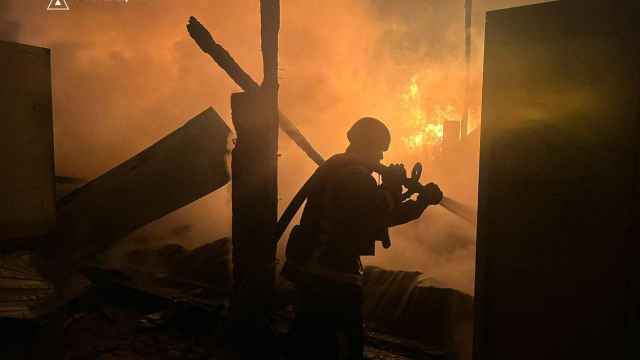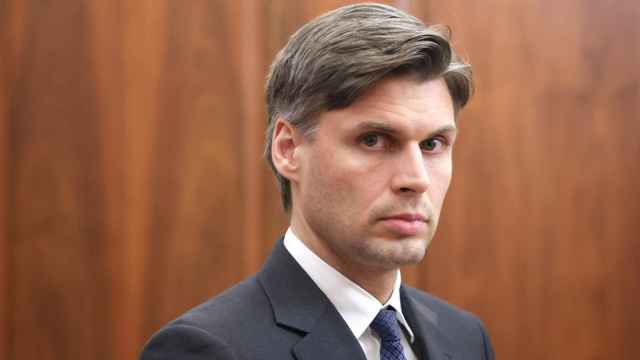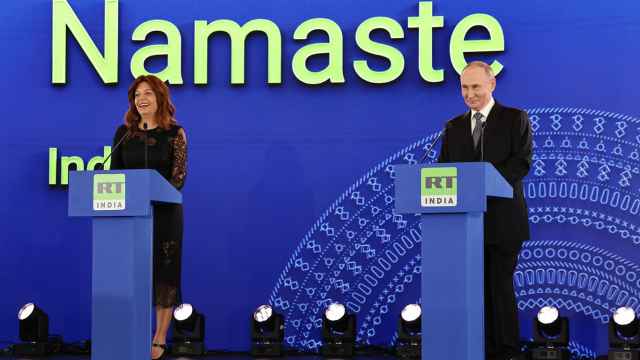TBILISI, Georgia — Like many in North Africa and the Arab world shaken by popular uprisings in past weeks, Azerbaijan has all the ingredients for unrest — dynastic family rule, a yawning income gap and a lack of political freedoms.
But unlike in Egypt or Tunisia, Azeris are on the whole in no mood for more chaos.
Recent small protests show little sign of a change.
"Azerbaijan differs from the North Africa scenario because of the trajectory of the past 20 years," said Svante Cornell, research director at the Washington-based Central Asia-Caucasus Institute. "The 1990s were very bad, with war and economic collapse. Since 2005, things are improving and the population is seeing some concrete benefits in terms of wages, pensions, quality of infrastructure."
President Ilham Aliyev and his father, Heidar, before him have taken credit for the turnaround, enshrining Heidar as savior of the nation after the traumatic first years of independence when the rebel Nagorno-Karabakh region broke away, the economy collapsed, and a military uprising forced President Abulfaz Elchibey to flee.
Heidar Aliyev, who dominated Soviet Azerbaijan first as KGB chief, then Communist party boss from the 1960s to 1980s, took control. His return to Baku from his native Nakhchivan region in June 1993 is marked every year as National Salvation Day.
Azerbaijan's fractious opposition is still dominated by aging figures fatally associated with the collapse of the early 1990s. "Many people are not happy with the government, but they do not trust the opposition and most of all they are afraid of instability," said Tabib Huseynov, a researcher with the Brussels-based International Crisis Group think tank.
Still, many Azeris are unhappy about wealth disparity and disenfranchisement. Police arrested 43 people in the capital, Baku, on March 11, and rights groups said more than 100 others were detained the next day during a rally organized by an opposition party.
More protests are promised, and other opposition groups have asked permission from Baku authorities for a rally on April 2.
But political analysts agree there is no immediate threat to Aliyev's grip on the country. "There isn't the social urban base for revolt in Azerbaijan that you saw in Egypt or Tunisia," said Tom de Waal, a senior associate at the Washington-based Carnegie Endowment for International Peace. "People are unhappy about corruption and a growing division between 'haves' and 'have nots,' but the situation isn't explosive."
The mainly rural population has limited access to the Internet, a powerful force for change in North Africa.
Analysts do see some signs of concern over the upheaval in the Arab world among the Azeri political elite. Some see an anti-corruption drive initiated by Aliyev after the unrest began in North Africa as a pre-emptive move to address the danger of a popular uprising.
One thing to watch is whether there is a cabinet reshuffle, Cornell said. Much of the cabinet is dominated by an old guard of ministers left over from Heidar's rule, and removing them could trigger deeper changes in the political system.
"It's too early to say whether it [reform] is serious or just window-dressing, but it may prove the starting point for some more serious reform," he said.
A Message from The Moscow Times:
Dear readers,
We are facing unprecedented challenges. Russia's Prosecutor General's Office has designated The Moscow Times as an "undesirable" organization, criminalizing our work and putting our staff at risk of prosecution. This follows our earlier unjust labeling as a "foreign agent."
These actions are direct attempts to silence independent journalism in Russia. The authorities claim our work "discredits the decisions of the Russian leadership." We see things differently: we strive to provide accurate, unbiased reporting on Russia.
We, the journalists of The Moscow Times, refuse to be silenced. But to continue our work, we need your help.
Your support, no matter how small, makes a world of difference. If you can, please support us monthly starting from just $2. It's quick to set up, and every contribution makes a significant impact.
By supporting The Moscow Times, you're defending open, independent journalism in the face of repression. Thank you for standing with us.
Remind me later.





